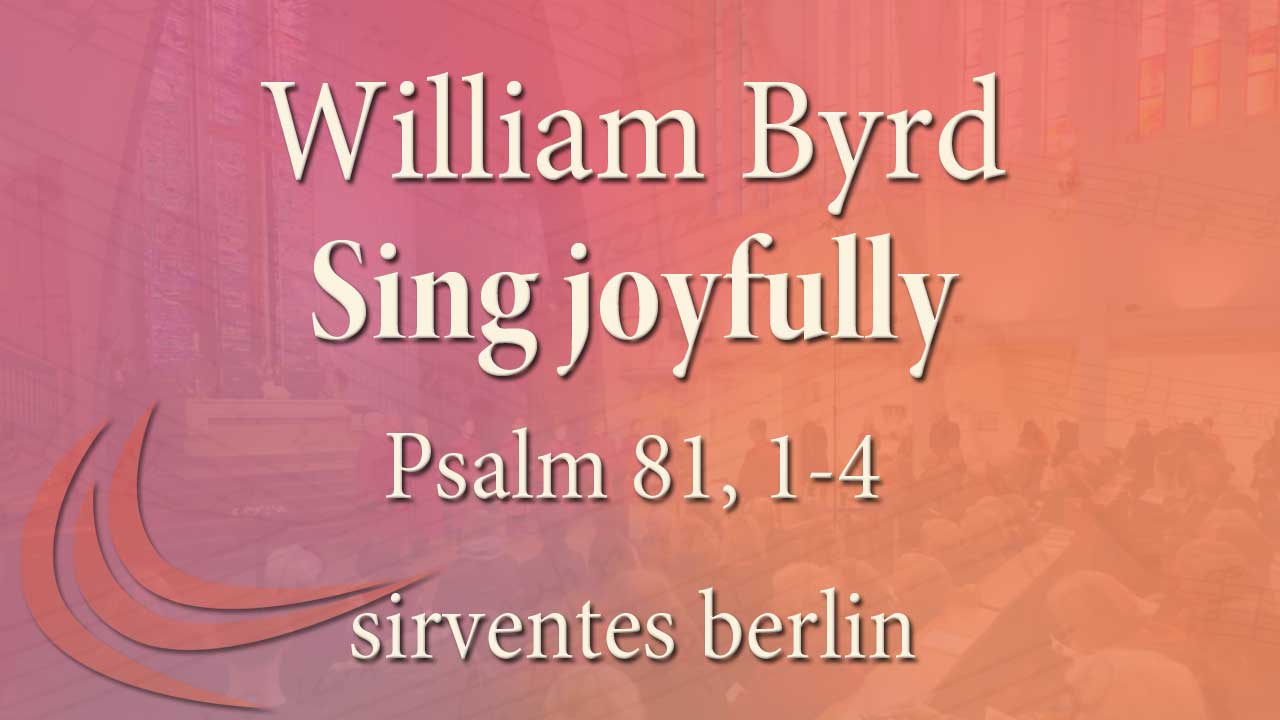Motet on Psalm 81:1-4 for six-part mixed choir a cappella
Warum wir dieses Werk lieben
The virtuosic motet “Sing joyfully” invites you to sing praise to God in a variety of ways and with all the instruments at your disposal.
Even during his lifetime, the six-part motet “Sing joyfully” was William Byrd’smost popular work. It was composed towards the end of the 16th century. With its ornate yet sweeping polyphonic motifs and lively onomatopoeia on the words “Blow the trumpet,” it remains a favorite piece in Anglican worship today.
Was bei einer Aufführung wichtig ist
The part division is interesting, with divided soprano and divided alto, while tenor and bass are not divided. This can be explained by the instrumentation of English cathedral choirs, in which alto, tenor and bass were usually sung by professional male voices, while the soprano was filled by boys’ voices. This score arrangement meant that the lower voices (which were rhythmically complex) were sung by experienced professionals and only the two lighter upper voices were sung by the young boys.
If you have to cast the alto with female voices today, it means that you may have to transpose the piece higher so that the alto voices are not too low.

